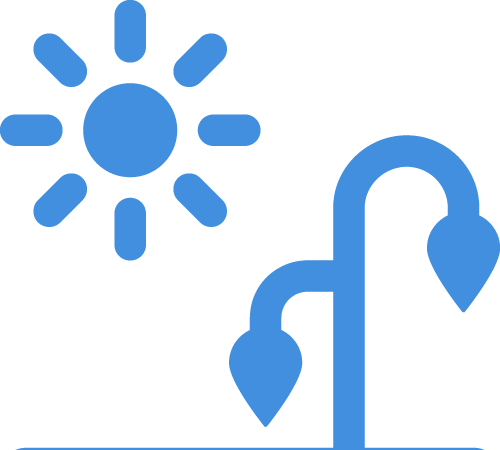Innovative EU-funded programme helped 1.2 million people with life-saving services – Democratic Republic of the Congo

Concern Worldwide supported 1.2 million people with lifesaving health and nutrition services and helped over 100,000 acutely malnourished children to recover as part of an innovative EU-funded programme to tackle the underlying drivers of malnutrition.
The three-year programme used a multi-pronged approach to tackle malnutrition in children aged under-five in Ethiopia, Niger, Republic of Sudan, South Sudan and the Democratic Republic of Congo.
The Enhanced Responses to Nutrition Emergencies (ERNE) programme combined lifesaving emergency nutrition treatment and prevention and preparedness activities to build community resilience to malnutrition in the longer term.
“The scale of malnutrition and acute undernutrition around the world in 2023 is shocking and unacceptable,” Concern Chief Executive David Regan said. “Currently over 50 million children aged under-five are acutely malnourished and just a quarter of these receive adequate care.”
EU funding
“The EU deserves major credit for focusing on childhood malnutrition and investing in this programme to explore new ways of addressing this issue. The success and promising insights gained from ERNE must now be built on. More investment is needed and longer term commitment is needed to end childhood malnutrition.”
Insights gained from this multi-pronged ERNE approach will be shared with nutritionists from around the world at an international online conference today. (See notes to the editor)
Among the highlights of the programme were:
- It provided practical and financial support to 304 health facilities in five countries and helped strengthen their capacity in the longer term through the provision of training, support, equipment and renovating clinics. Over half of these facilities reported an improvement in their capacity at the end of the programme;
- It provided emergency cash transfers to 175,000 people;
- It introduced the “Surge” approach in 275 health facilities allowing health workers to proactively monitor trends in malnutrition and common diseases to predict spikes in demand for healthcare and help ensure they can cope, for example by deploying more health staff to the area or pre-positioning more supplies of medicine or “Plumpy’nut”, a special paste used to treat malnutrition. As a result, almost three-quarters of the health facilities (72%) were able to maintain a good level of healthcare despite significant increases in demand at certain times.
- It supported communities to set up simple early warning monitoring systems in 33 different locations across the five countries. Volunteers in these communities were trained to look out for signs of impending drought, flooding, disease outbreaks or other risks that could lead to increased malnutrition and to sound the alert so that support can be provided to families before their situation becomes much worse.
A mother’s story
Nyahok Diew is among the mothers who benefited from ERNE in South Sudan. Her 10-month-old daughter, Nyariek, became unwell. The infant initially suffered from diarrhoea and was vomiting, but then developed a fever.
Nyahok brought her to a health care centre in Unity State, which is supported by Concern. As part of the ERNE programme, the staff there were trained in how to identify and treat malnutrition in young children.
After being screened by the staff, Nyariek was diagnosed with malnutrition and was put on a course of “Plumpy’nut”.
“After coming to the clinic for the second time, I have found that my child is gaining weight. Which is a great relief,” she said.
Unique funding arrangement
The ERNE Programme was supported under a unique arrangement with the EU’s humanitarian Aid (ECHO) which provided three-year funding in place of the normal short-term cycles of funding which humanitarian donors often provide.
Concern was one of only four international non-governmental organisations selected to pilot this new arrangement under a “Programmatic Partnership” with the EU. This strategic multi-annual funding enabled Concern to implement a wider reaching and longer-lasting form of humanitarian response.
“The programme was able to work with communities and governments in very conflict-prone and climate affected countries over a longer timeframe to address some of the root causes of poverty and hardship rather than providing continual humanitarian aid,” said Aoife Black, Concern’s ERNE Global Co-ordinator.
For media queries contact Eamon Timmins, Media Relations Manager, Concern Worldwide, at eamon.timmins@concern.net or 087 9880524.
Notes for the Editor
The ERNE programme results and learnings gained from it will be discussed at an online international learning event “Rethinking Responses to Chronic Health and Nutrition Emergencies in Fragile Contexts” organised by Concern today (May 23). Further information on the event can be found at https://www.concern.net/erne-nutrition-health-event
About EU Civil Protection and Humanitarian Aid:
The European Union and its Member States are the world’s leading donor of humanitarian aid. Relief assistance is an expression of European solidarity with people in need all around the world. It aims to save lives, prevent and alleviate human suffering, and safeguard the integrity and human dignity of populations affected by natural disasters and man-made crises.
Through its Civil Protection and Humanitarian aid Operations department, the European Union helps millions of victims of conflict and disasters every year. With headquarters in Brussels and a global network of field offices, the EU provides assistance to the most vulnerable people on the basis of humanitarian needs.






